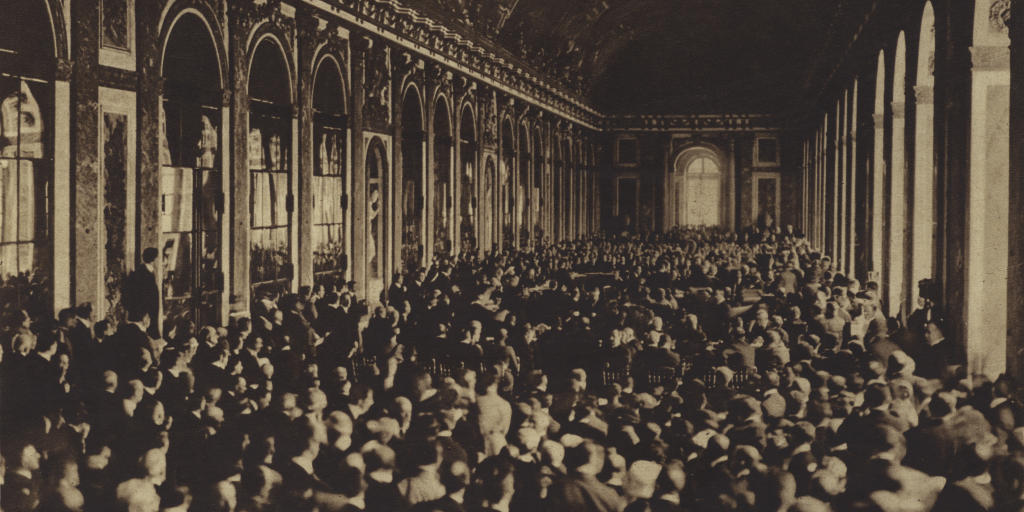The first major diplomatic meeting of the 20th century, the Paris conference, which followed the end of the First World War, shows how difficult it can be for the victors to agree on the fate of the vanquished.
It is almost 3 p.m. on Saturday, June 28, 1919, and Pierre de Nolhac is about to experience some of the most intense minutes of his life. Curator of the Palace of Versailles since 1892, it is he who is responsible for driving to the Hall of Mirrors the two German ministers who have come to sign the treaty supposed to put an end to the war started five years earlier, to the day, after the assassination of the heir to the Austro-Hungarian throne by a Serbian terrorist in Sarajevo.
“At one of the French windows [on the ground floor] appeared the German delegates, led through the deserted park, and we had to lead them along those pretty rooms where the portraits of our history had recently come to life again. , he will tell in The Resurrection of Versailles. Memories of a Curator (1937). At the signal, I took the lead of the little procession and led it, through salons which must have seemed interminable, to the marble staircase where the Republican Guards lined the steps. I will never forget the order given as we approached and repeated from room to room as we advanced, and the sound of the steel as it re-sheathed. It was, for a few more moments, the enemy passing and defeated, and I saw in the eyes of Hermann Müller [Minister of Foreign Affairs] tears forming that he could not conceal. As soon as we appeared under the arcade of the Salon de la Paix, Germany was led to the places reserved for her and the ceremony began. »
For the two Germans, who arrived in France in the middle of the previous night, the three quarters of an hour that followed were a nightmare. While the representatives of the victorious countries and their allies follow one another in the small Louis XV office where a copy of the treaty and its 440 articles has been placed, they wait in a corner, under the gaze of the thousand politicians, diplomats, soldiers and journalists who fill the Hall of Mirrors.
This article is originally published on lemonde.fr


